
Chairman’s Statement of the 43rd ASEAN Summit, Jakarta, Indonesia 5 September 2023

Conversations on Vietnam Development


CSIS
Indonesia, this year’s Association of Southeast Asian Nations (ASEAN) chair, held a flurry of ministerial meetings earlier this month. From July 11-12, it hosted the ASEAN Foreign Ministers’ Meeting in Jakarta. Timor Leste, which became an ASEAN observer state last year, sent a delegation for the first time. Chief among the ministers’ conversation topics was the ongoing civil war in Myanmar; moreover, ministers shared their continued concerns regarding aggressive Chinese behavior in the South China Sea. On July 13, ASEAN foreign ministers, joined by their counterparts from Japan, China, and South Korea, met for the 24th ASEAN Plus Three Foreign Ministers’ meeting. Lastly, Indonesia hosted the ASEAN Regional Forum on July 14, setting the stage for ASEAN partners such as the United States, Russia, and China, to meet on the sidelines.
Tiếp tục đọc “The Latest on Southeast Asia (July 20, 2023)”Indonesia proposal for first-ever bloc exercises in South China Sea meets vocal resistance from China’s top regional ally Cambodia
By RICHARD JAVAD HEYDARIAN JUNE 17, 2023 Asia Times

Rising Sino-American rivalry and fears of an accidental superpower clash are forcing states to step up their diplomatic games.
That’s particularly true for the Association of Southeast Asian Nations (ASEAN), which is now scrambling to forge greater internal unity and nudge the US and China toward greater dialogue to avoid a conflict in its neighborhood.
Tiếp tục đọc “Cambodia seeks to sink joint ASEAN naval drills”Báo Thanh Niên – 1-6-2023
Kênh đào Bình Lục đổ vào Vịnh Bắc Bộ với kinh phí 10,3 tỉ USD mà Trung Quốc đang xây dựng có thể giúp nước này xích lại gần hơn với khu vực Đông Nam Á.
HUY THỌ – 13/05/2023 09:58 GMT+7
TTCT – Đã hơn nửa đường SEA Games 32 trôi qua, và điều đọng lại lớn nhất trong tôi chính là chủ nhà!
Campuchia là một quốc gia nghèo trong khu vực Đông Nam Á. Tính thu nhập bình quân đầu người, trong khu vực họ chỉ đứng trên Myanmar và Đông Timor.

Ảnh: Inside The Games
Vậy mà lần đầu tiên tổ chức SEA Games, một sự kiện phải chăm sóc cả chục ngàn con người tham gia, chưa tính du khách, họ đã làm rất tốt.
Tiếp tục đọc “Mỗi tuần một chuyện: Tre Campuchia thật là dẻo…”
HUY ĐĂNG – 13/05/2023 07:01 GMT+7
TTCT – Với nhiều môn thể thao, tấm HCV ở các kỳ đại hội lớn (Olympic, Asiad, SEA Games) là mục tiêu đỉnh cao. Nhưng với một số khác, đó lại chỉ là bước đệm.
Danh sách này gồm bóng đá, bóng rổ, quần vợt, cầu lông, các môn đấu võ đài… Đó thường là những môn thể thao nhà nghề có tính giải trí cao với lực lượng người hâm mộ đông đảo.

HUY THỌ – 01/05/2023 10:52 GMT+7
TTCT – Đam mê thành tích thật ra không phải chuyện xấu.

Từ phương Đông tới phương Tây, có bậc phụ huynh nào không muốn con đi học có thành tích tốt, được vinh danh trên bảng vàng, được nguyên thủ quốc gia viết thư khen… Còn trong thể thao, đi thi đấu thì ai chẳng thích nhận huy chương.
Vấn đề nằm ở chỗ thành tích đạt được có đúng với thực lực hay không? Vì vậy, có phê phán bệnh đam mê thành tích cần thêm cụm từ “bằng mọi giá”.

Download Report from Yusof Ishak Institute >>
The ASEAN Studies Centre (ASC) at ISEAS – Yusof Ishak Institute released “The State of Southeast Asia 2023 Survey Report” online at 1130 hr on 9 February 2023 (Singapore time).
Findings from the latest run of the State of Southeast Asia Survey conducted by the ASEAN Studies Centre at the ISEAS – Yusof Ishak Institute reveal that Southeast Asia’s top preoccupations are with recessionary pressures, potential military tensions, and a ‘slow and ineffective’ ASEAN. China continues to be regarded as the most influential economic and political power in the region and the US has sharpened its edge over China in the event of a forced choice while Japan remains its most trusted major power. Click to read the full Media Release.
For current and past years reports, click here.
For Event Highlights of the discussion, click here.
To view the discussion, click here.
Media Coverage:
Tiếp tục đọc “The State of Southeast Asia – 2023 Survey Report”ASEAN FINANCE SECTORAL BODIES RELEASE ASEAN TAXONOMY FOR SUSTAINABLE FINANCE
VERSION 2
The ASEAN Taxonomy Board (ATB), representing ASEAN finance sectoral bodies, today took the next
step towards meeting the Paris Agreement commitments, with the release of the ASEAN Taxonomy
for Sustainable Finance Version 2 (Version 2). While the first version laid out the broad framework of
the ASEAN Taxonomy, Version 2 consists of the (a) complete Foundation Framework comprising
detailed methodologies for assessing economic activities; and (b) Technical Screening Criteria (TSC)
for the first focus sector ie Electricity, Gas, Steam and Air Conditioning Supply sector (Energy sector)
under the Plus Standard. TSCs for other focus sectors will be published in the subsequent versions of
the ASEAN Taxonomy. Version 2 builds on the conceptual thinking of the multi-tiered framework
outlined in Version 1. The multi-tiered framework is intended to facilitate transition of ASEAN Member
States (AMS) recognising the diversity in economic development, financial sector, and infrastructure
maturity.
Through the Foundation Framework which adopts a principles-based approach, users are now able to
qualitatively assess economic activities using guiding questions, decision trees and use cases for all
the four environmental objectives(EOs) and three essential criteria (EC). The environmental objectives
and essential criteria, as well as guiding questions that make up the Foundation Framework are
designed to be readily applicable to all AMS as well as stakeholders in the financial sector and business
enterprises. Using the guiding questions, activities are classified as Green, Amber or Red.
The Plus Standard adopts a more advanced assessment and methodology that is based on specific TSC
and science-based thresholds in classifying activities. To further encourage and recognise transition
efforts by businesses, the Plus Standard contains Amber Tier 2 and Amber Tier 3 classifications which
will be retired over time. This is in addition to the Green tier that is aligned with other relevant
international taxonomies and benchmarked to the 1.50C Paris Agreement target.
.
Version 2 also highlights the importance of social aspects in the Taxonomy, by incorporating it as the
ASEAN Taxonomy’s third EC, alongside “Do No Significant Harm” (DNSH) and “Remedial Measures to
Transition” (RMT). In combination with other features such as the expansion of the “Do No Significant
Harm” criteria, common building blocks are established to enable an orderly and just transition and
foster sustainable finance adoption by ASEAN countries.
In considering ASEAN’s specific circumstances, the Taxonomy recognises efforts to the early
retirement of coal-fired power plants. A global first for a regional taxonomy, the ATB has thoroughly
considered how and where coal phase-outs (CPOs) can play a role in decarbonisation in support of the
Paris Agreement goals and when approached correctly, provides a powerful tool for transition.
The ASEAN Taxonomy Version 2 can be found at the following websites: • Association of Southeast Asian Nations – https://asean.org/wpcontent/uploads/2023/03/ASEAN-Taxonomy-Version-2.pdf
The key question is whether ASEAN can make a constructive and meaningful contribution to resolving its own internal divisions, let alone to influencing the behavior of China and the United States. Such outcomes may be unlikely but not impossible if the ASEAN states can develop a coherent, continuing, and collective response to the challenges they face.
Mark Beeson Global Studies Quarterly, Volume 2, Issue 1, January 2022, ksab044, https://doi.org/10.1093/isagsq/ksab044 Published: 21 January 2022 Article history
Aljazeera – Vladimir Putin’s absence from the G20 Summit in Bali also undermines talk of a Russian pivot to the Asia-Pacific region.
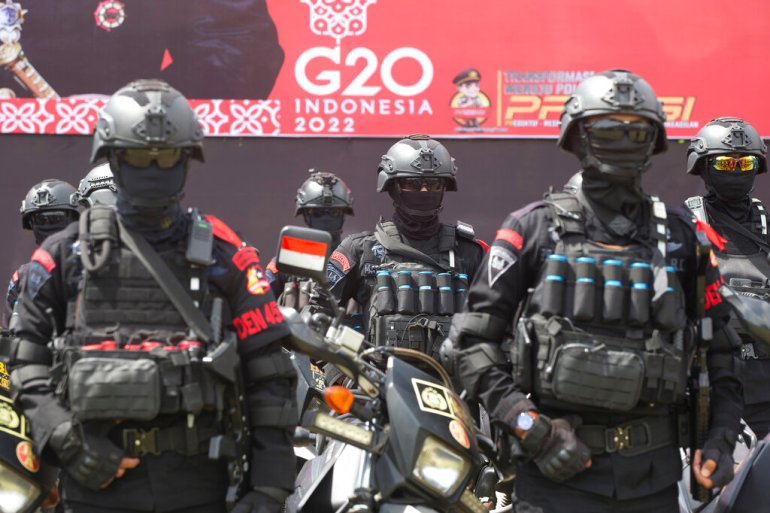
By Al Jazeera Staff
Published On 15 Nov 202215 Nov 2022
Russian President Vladimir Putin has oozed a casual resentment when describing the “irreversible and even tectonic changes” that he says have led the West to become a spent force in the world.
“Western countries are striving to maintain a former world order that is beneficial only to them,” he told attendees at the Eastern Economic Forum in the Russian city of Vladivostok in September.
Tiếp tục đọc “Russia’s war in Ukraine challenges old comrades in Southeast Asia”

Updated 2:54 AM EST, Fri November 11, 2022
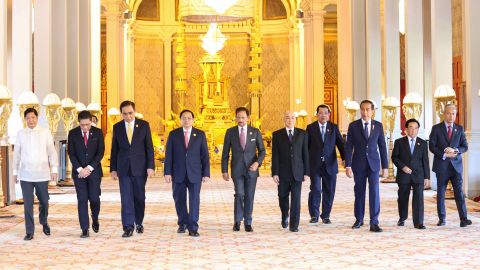
Leaders of Southeast Asian nations make courtesy call to Cambodia’s king before a summit in Phnom Penh on November 10, 2022.Khem Sovannara/AFP/Getty Images
Editor’s Note: A version of this story appeared in CNN’s Meanwhile in China newsletter, a three-times-a-week update exploring what you need to know about the country’s rise and how it impacts the world. Sign up here.
Hong Kong CNN —
World leaders are converging in Phnom Penh this weekend for the first in a series of international summits in Southeast Asia over the coming week, where divisions between major powers and conflict threaten to overshadow talks.
The first stop is the Cambodian capital where leaders from across the Indo-Pacific will meet alongside a summit of Association of Southeast Asian Nations (ASEAN) leaders, followed next week by a meeting of the Group of 20 (G20) leaders in Bali and of the Asia-Pacific Economic Cooperation forum in Bangkok.
Tiếp tục đọc “As major powers meet in Asia, the rest of the world is pressed to pick a side”asiatimes – Democracy Perception Index survey shows most Southeast Asians would not support cutting economic ties with China if it invades Taiwan
By DAVID HUTTJUNE 1, 2022Print

Military helicopters carrying large Taiwan flags do a flyby rehearsal on October 5, 2021, ahead of National Day celebrations amid escalating tensions between Taipei and Beijing. Photo: AFP / Ceng Shou Yi / NurPhoto
A recent Democracy Perception Index survey of worldwide public opinion found that a majority of Southeast Asians would not support their governments cutting economic ties with China if Beijing launched an invasion of Taiwan.
The same report found that only Singaporeans, from the six Southeast Asian countries surveyed, favored cutting economic ties with Russia because of its invasion of Ukraine in February. Indonesians and Vietnamese were two of the three nationalities who believed most strongly that ties with Russia should be maintained.
The Democracy Perception Index 2022 survey, published this month by Latana and the Alliance of Democracies Foundation, asked respondents: “If China started a military invasion of Taiwan, do you think your country should cut economic ties with China?”
Tiếp tục đọc “Southeast Asians sticking with China on Taiwan: survey”
| By David Leonhardt, New York Times newsletter |
 President Biden in Japan.Doug Mills/The New York Times |
| Biden in Asia |
| The politics of trade policy have become toxic in the U.S. |
| For decades, the mainstream of both the Democratic and Republican parties favored expanding trade between the U.S. and other countries. Greater globalization, these politicians promised, would increase economic growth — and with the bounty from that growth, the country could compensate any workers who suffered from increased trade. But it didn’t work out that way. |
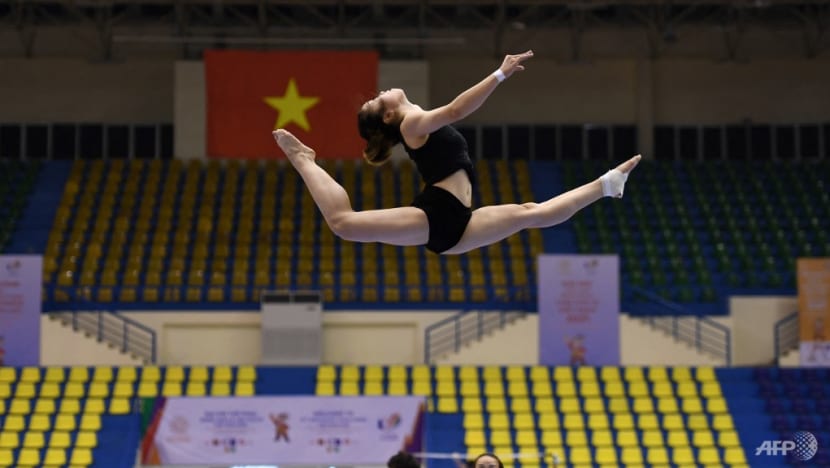
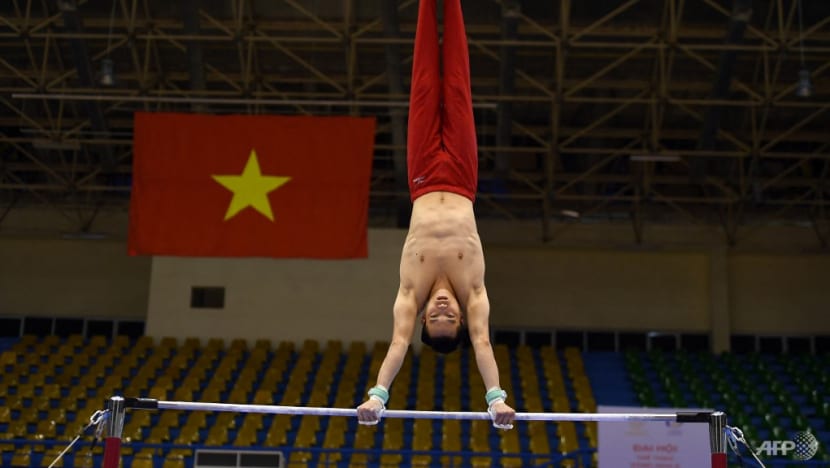
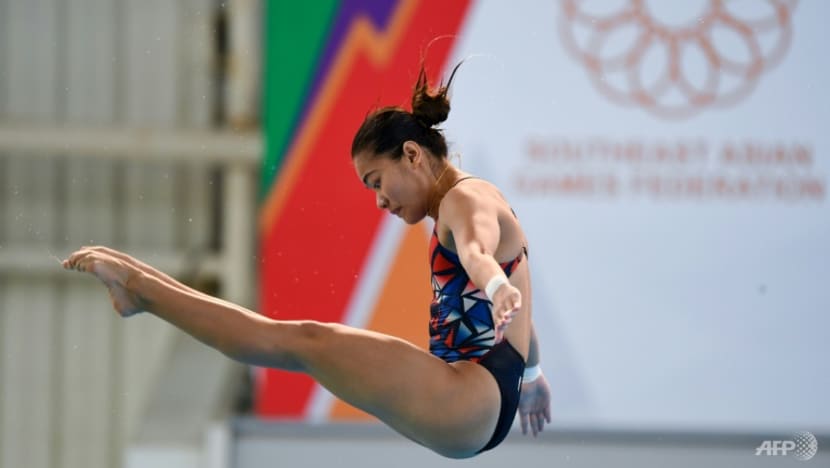
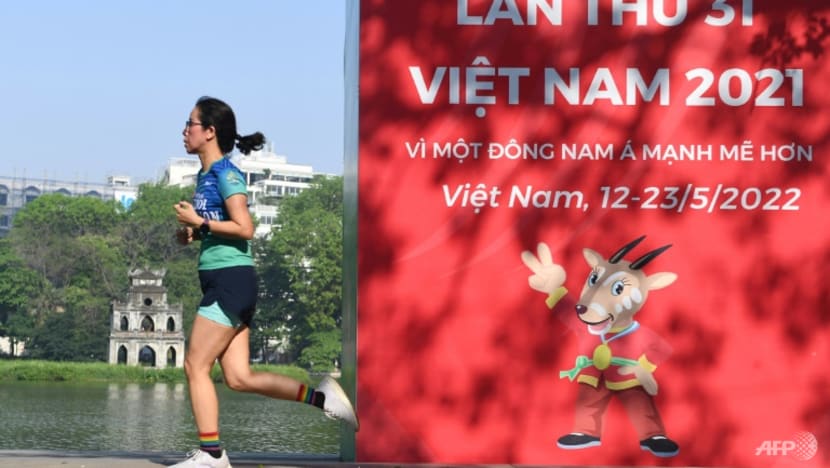
HANOI: The Southeast Asian Games open in the Vietnamese capital Hanoi on Thursday (May 12) after a six-month COVID-19 delay with Southeast Asian pride at stake in everything from football to bodybuilding and e-sports.
More than 5,000 athletes including Olympic champions are vying for more than 500 gold medals in the event, which is staged every two years, in what should be packed arenas.
The 11-nation Games include traditional Olympic sports such as athletics, swimming and boxing, but also regional ones like sepak takraw, an eye-catching volleyball-style game where teams kick a rattan ball.
Tiếp tục đọc “SEA Games to light up Hanoi after COVID-19 delay”